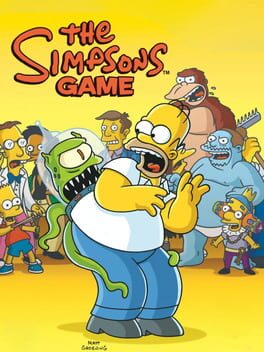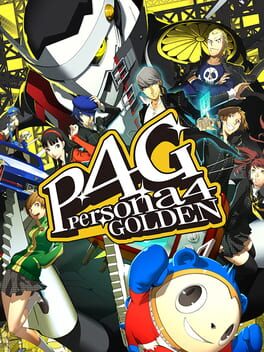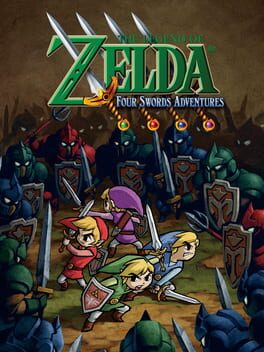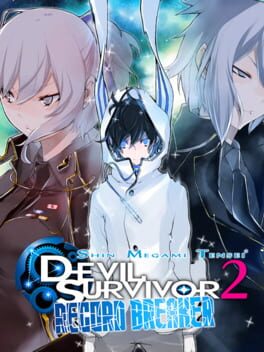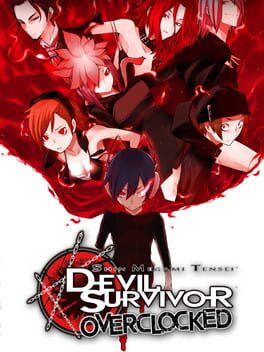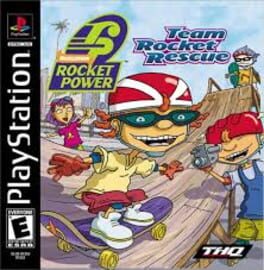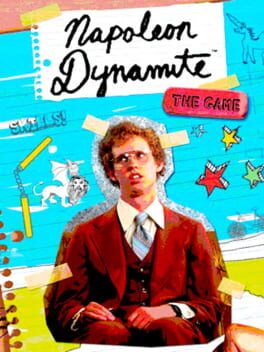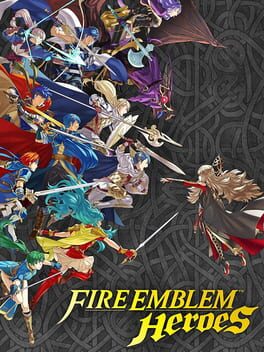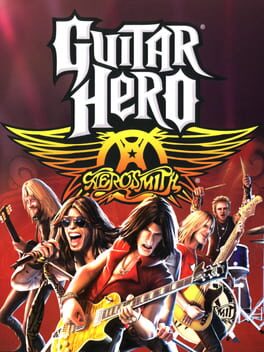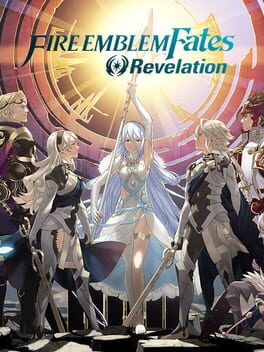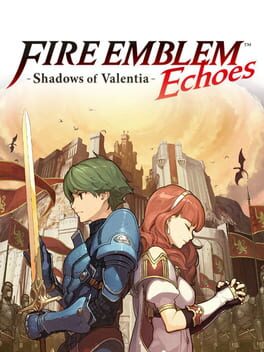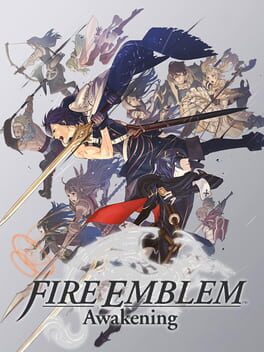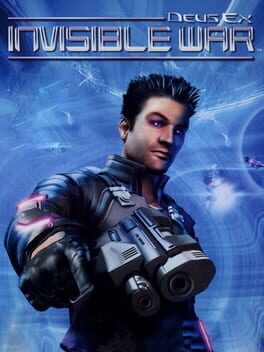Parallax_M
BACKER
2007
I remember having an okay time with this as a kid but being massively disappointed given that hit and run was one of my favorite games and classic simpsons my favorite show. Looking at the multiple entries for this game, however, does make me nostalgic for an era where licensed games got three or four completely different versions to accommodate older consoles and handhelds.
2020
One of my favorite if not my favorite game of all time despite having quite a few glaring issues.
The reason it’s probably my favorite game of all time and why I’ve spent around 400 hours on it is that playing it just makes me happy. Despite having some dark themes, this is a feel good game if there ever was one. The characters and the world are just so charming. Playing this game feels like going on a relaxing vacation.
My main criticisms are twofold. First, the dungeons can definitely be a bit monotonous at times especially if you find yourself over leveled which is very easy to do. The dungeon design was improved in persona 5 but the ease with which you can become over leveled is a flaw present in pretty much all the persona games. This is a small criticism however. The game is still very fun and the dungeons aren’t really the reason to play it anyway.
My other main criticism regards many of the writing choices. The notable one is with the characterization of Kanji and Naoto in regards to the suggestion at various points of the game that they’re both queer. Now, these characters don’t have to be queer for them to be well written - that is not my critique at all - they could still be compelling and well written characters without that. My main issue is with the way the question of their queerness is resolved by the game. It honestly feels like some of the writers wanted to go further with it e.g. have Kanji be gay and come to terms with that in a positive way - but some higher up told them they couldn’t do that. This seems even more likely if you think about it in the context of the scrapped Yosuke romance option and the fact that even persona 2 had the option for the main character to be gay and confess his feelings for a male party member. If this higher up scenario was the case they should have ditched the focus on queerness altogether. As it stands we get a strange sort of half measure where the character arc feels at times very unnatural. The same goes for naoto, whose queerness is handled even more poorly IMO. The pinnacle of this being Yu getting to decide whether or not Naoto wears women’s or men’s clothing based on his preference if they’re dating. There’s actually a mod to change the dialogue in this scene to make the girl’s school uniform scene happen because Naoto wants to experiment with wearing girl’s clothes.
This is getting kind of rambling but here’s my main point: in a game where the main message is supposed to be coming to terms with your true self having two arcs where characters think they’re maybe queer and then realizing “oh wait I’m not” (either genuinely or due to social pressure) feels really bizarre. Why even bring up the question of their queerness in the first place if you’re going to do that. Kanji easily could have been a guy who likes traditionally feminine things and is embarrassed about it and has to come to terms with that and nothing else. Naoto would be a bit harder to fix since her wearing mens clothing is central to her character. It's really hard for me to imagine a way that arc could work without Naoto eventually identifying as gender non-conforming in some sense. Some people have proposed that Naoto's arc could be about a cis woman who crossdresses to fit in at work and then learns how to be comfortable with being a woman in a male-dominated profession. This, however would be an incredibly fraught and honestly quite boring route to take with Naoto. In Persona 4, Naoto's arc ends up being this really strange and confused story where she clearly feels more comfortable presenting as a boy in all situations but this is implied to be because she is just insecure about being a girl. The arc ends with the conclusion that naoto should just learn to be more confident about being a girl, which is a very unsatisfying and depressing conclusion for her arc and honestly just a very anti-trans sentiment that kind of stains what is otherwise a very likable and charming character.
My main point with all this - either go all the way and have realistic arcs about characters coming to terms with their queerness or scrap that angle altogether. It’s such a shame because Kanji and Naoto are such wonderfully written and likable characters in general. Their arcs, for all their flaws also have some really touching and wonderful moments. I just wish the entirety of the arcs was like that and didn’t suffer at times from confused and indecisive writing where it feels like two different people with very different ideas of where the arcs should go were butting heads. This issue of character development that seems to fly in the face of Persona 4's supposed theme is present to some degree in pretty much every main character arc.
All of this said I still adore this game and it’s still one of my favorites. It is however a very flawed game and by no means the best I’ve ever played. Replaying this game necessitates me relying on extensive head canon as well as mods to fix some of its more glaring writing issues, which is honestly a shame. To anyone reading this review who really loves this game - these criticisms aren't meant to spoil your enjoyment of persona 4 or make a claim that you're bad for liking it. It's totally fine to love this game and it's also totally fine to really dislike this game - there are certainly a lot of valid reasons for people to dislike it. For everyone who does love this game, however, I think its important for all of us to be critical of media we enjoy. It's very possible to admit that a piece of media is flawed or problematic and still thoroughly enjoy it in spite of that. After all, Persona 4G definitely has a lot to enjoy despite its flaws.
The reason it’s probably my favorite game of all time and why I’ve spent around 400 hours on it is that playing it just makes me happy. Despite having some dark themes, this is a feel good game if there ever was one. The characters and the world are just so charming. Playing this game feels like going on a relaxing vacation.
My main criticisms are twofold. First, the dungeons can definitely be a bit monotonous at times especially if you find yourself over leveled which is very easy to do. The dungeon design was improved in persona 5 but the ease with which you can become over leveled is a flaw present in pretty much all the persona games. This is a small criticism however. The game is still very fun and the dungeons aren’t really the reason to play it anyway.
My other main criticism regards many of the writing choices. The notable one is with the characterization of Kanji and Naoto in regards to the suggestion at various points of the game that they’re both queer. Now, these characters don’t have to be queer for them to be well written - that is not my critique at all - they could still be compelling and well written characters without that. My main issue is with the way the question of their queerness is resolved by the game. It honestly feels like some of the writers wanted to go further with it e.g. have Kanji be gay and come to terms with that in a positive way - but some higher up told them they couldn’t do that. This seems even more likely if you think about it in the context of the scrapped Yosuke romance option and the fact that even persona 2 had the option for the main character to be gay and confess his feelings for a male party member. If this higher up scenario was the case they should have ditched the focus on queerness altogether. As it stands we get a strange sort of half measure where the character arc feels at times very unnatural. The same goes for naoto, whose queerness is handled even more poorly IMO. The pinnacle of this being Yu getting to decide whether or not Naoto wears women’s or men’s clothing based on his preference if they’re dating. There’s actually a mod to change the dialogue in this scene to make the girl’s school uniform scene happen because Naoto wants to experiment with wearing girl’s clothes.
This is getting kind of rambling but here’s my main point: in a game where the main message is supposed to be coming to terms with your true self having two arcs where characters think they’re maybe queer and then realizing “oh wait I’m not” (either genuinely or due to social pressure) feels really bizarre. Why even bring up the question of their queerness in the first place if you’re going to do that. Kanji easily could have been a guy who likes traditionally feminine things and is embarrassed about it and has to come to terms with that and nothing else. Naoto would be a bit harder to fix since her wearing mens clothing is central to her character. It's really hard for me to imagine a way that arc could work without Naoto eventually identifying as gender non-conforming in some sense. Some people have proposed that Naoto's arc could be about a cis woman who crossdresses to fit in at work and then learns how to be comfortable with being a woman in a male-dominated profession. This, however would be an incredibly fraught and honestly quite boring route to take with Naoto. In Persona 4, Naoto's arc ends up being this really strange and confused story where she clearly feels more comfortable presenting as a boy in all situations but this is implied to be because she is just insecure about being a girl. The arc ends with the conclusion that naoto should just learn to be more confident about being a girl, which is a very unsatisfying and depressing conclusion for her arc and honestly just a very anti-trans sentiment that kind of stains what is otherwise a very likable and charming character.
My main point with all this - either go all the way and have realistic arcs about characters coming to terms with their queerness or scrap that angle altogether. It’s such a shame because Kanji and Naoto are such wonderfully written and likable characters in general. Their arcs, for all their flaws also have some really touching and wonderful moments. I just wish the entirety of the arcs was like that and didn’t suffer at times from confused and indecisive writing where it feels like two different people with very different ideas of where the arcs should go were butting heads. This issue of character development that seems to fly in the face of Persona 4's supposed theme is present to some degree in pretty much every main character arc.
All of this said I still adore this game and it’s still one of my favorites. It is however a very flawed game and by no means the best I’ve ever played. Replaying this game necessitates me relying on extensive head canon as well as mods to fix some of its more glaring writing issues, which is honestly a shame. To anyone reading this review who really loves this game - these criticisms aren't meant to spoil your enjoyment of persona 4 or make a claim that you're bad for liking it. It's totally fine to love this game and it's also totally fine to really dislike this game - there are certainly a lot of valid reasons for people to dislike it. For everyone who does love this game, however, I think its important for all of us to be critical of media we enjoy. It's very possible to admit that a piece of media is flawed or problematic and still thoroughly enjoy it in spite of that. After all, Persona 4G definitely has a lot to enjoy despite its flaws.
Disclaimer - I have never played this game with other people, only single player. I would actually wager that very few people who’ve played this game have done so with any more than 2 players due to how difficult it is to set up a multiplayer session - requiring a GameCube, a GBA, 4 link cables and three friends with another GBA apiece.
While the GBA linking concept is utilized in a creative and interesting way, the high barrier to entry for even playing this game as it’s intended is definitely a massive negative for the title as a whole.
That said, unlike the version of Four Swords on the DSi, four swords adventures actually has an enjoyable and well implemented single player mode. Arranging and switching between links is seamless and intuitive and it’s actually pretty easy to multitask with them and have the links do different things in quick succession. This mostly comes into play during boss battles, which are generally high quality.
The level design in this game is similar to the original four swords i.e pretty different from normal Zelda games. Most levels act as a sort of mini dungeon - even levels that take place outdoors - where the links will proceed down various linear paths and sometimes backtrack when new paths are opened by player actions. There are a couple levels that switch things up by acting more as puzzle boxes where the player has to talk to different NPCs and complete tasks and puzzles to proceed.
Combat generally feels good and is actually a bit more involved than most 2D Zelda games due to the expanded combat mechanics allowed by the four links.
The biggest flaw this game has - apart from the high barrier to entry - is due to how it breaks from the classic Zelda formula that fans know and love. While the mini dungeon focused design of FSA can be fun it’s not nearly as refined or engaging as the classic Zelda formula that Nintendo had perfected by this time. Four swords adventures, despite sounding fine on paper, is honestly just a huge slog to play. I actively had to force myself to finish. This was no doubt exacerbated by this game’s surprisingly long run time. It’s very repetitive and neither puzzles nor combat involves much challenge or engages the player in creative ways. After the first world you’ll have experienced pretty much everything this game has to offer. If you want to actually finish it you’re going to be in for a very boring and repetitive experience.
I’d only recommend this game to hardcore Zelda fans who want to see what it’s like and even then I’d probably only recommend they play the first few levels and then move. If it ever gets a remaster and playing with three other people is more practical id probably be recommending it to more people. However, as it stands, most people trying this game for the first time in 2023 will probably be playing single player which just isn’t a terribly worthwhile experience.
While the GBA linking concept is utilized in a creative and interesting way, the high barrier to entry for even playing this game as it’s intended is definitely a massive negative for the title as a whole.
That said, unlike the version of Four Swords on the DSi, four swords adventures actually has an enjoyable and well implemented single player mode. Arranging and switching between links is seamless and intuitive and it’s actually pretty easy to multitask with them and have the links do different things in quick succession. This mostly comes into play during boss battles, which are generally high quality.
The level design in this game is similar to the original four swords i.e pretty different from normal Zelda games. Most levels act as a sort of mini dungeon - even levels that take place outdoors - where the links will proceed down various linear paths and sometimes backtrack when new paths are opened by player actions. There are a couple levels that switch things up by acting more as puzzle boxes where the player has to talk to different NPCs and complete tasks and puzzles to proceed.
Combat generally feels good and is actually a bit more involved than most 2D Zelda games due to the expanded combat mechanics allowed by the four links.
The biggest flaw this game has - apart from the high barrier to entry - is due to how it breaks from the classic Zelda formula that fans know and love. While the mini dungeon focused design of FSA can be fun it’s not nearly as refined or engaging as the classic Zelda formula that Nintendo had perfected by this time. Four swords adventures, despite sounding fine on paper, is honestly just a huge slog to play. I actively had to force myself to finish. This was no doubt exacerbated by this game’s surprisingly long run time. It’s very repetitive and neither puzzles nor combat involves much challenge or engages the player in creative ways. After the first world you’ll have experienced pretty much everything this game has to offer. If you want to actually finish it you’re going to be in for a very boring and repetitive experience.
I’d only recommend this game to hardcore Zelda fans who want to see what it’s like and even then I’d probably only recommend they play the first few levels and then move. If it ever gets a remaster and playing with three other people is more practical id probably be recommending it to more people. However, as it stands, most people trying this game for the first time in 2023 will probably be playing single player which just isn’t a terribly worthwhile experience.
First some criticisms of TOTK: the story isn’t terribly engaging and certainly not as good as BOTW’s. TOTK doesn’t benefit from BOTW’s novelty and overall feels a bit less special because of it. About half the boss fights are too easy and not terribly interesting. The dungeons aren’t anything special (as was the case with BOTW) and overall pale in comparison to those of earlier Zelda games.
TOTK is a game with quite a few flaws. So why does it deserve such a high score? Despite everything wrong with it, TOTK offers players unparalleled freedom for sequence breaking, emergent gameplay, and unanticipated uses of the game’s systems. TOTK does these things to such an extreme degree and so successfully that it’s worth playing and praising for that reason alone. These systems won’t be enjoyable for everyone, and they don’t always complement the game’s method of storytelling and level design but they do create an experience that is undeniably unique and unforgettable. So many AAA games are a fun time, but they’re experiences that play it too safe and that players will likely forget mere weeks after finishing. It’s so refreshing to see TOTK commit so hard to its chosen design philosophy of player freedom. If this player freedom were woven perfectly with the story and level design TOTK would be an easy 10/10.
Apart from this TOTK is just a really fun time and absolutely recaptures the sense of exploration and adventure that BOTW did.
A note to anyone who hasn’t played the game yet: please do not look up tips for using the games mechanics or how to build perfect vehicles with ultrahand before playing the game. So much of what makes this game special comes from figuring those things out on your own. The game will likely still be fun for players that look these things up but they’ll be doing themselves a disservice. They’ll be downgrading a truly special and memorable game to one that has to settle for being merely entertaining and fun.
TOTK is a game with quite a few flaws. So why does it deserve such a high score? Despite everything wrong with it, TOTK offers players unparalleled freedom for sequence breaking, emergent gameplay, and unanticipated uses of the game’s systems. TOTK does these things to such an extreme degree and so successfully that it’s worth playing and praising for that reason alone. These systems won’t be enjoyable for everyone, and they don’t always complement the game’s method of storytelling and level design but they do create an experience that is undeniably unique and unforgettable. So many AAA games are a fun time, but they’re experiences that play it too safe and that players will likely forget mere weeks after finishing. It’s so refreshing to see TOTK commit so hard to its chosen design philosophy of player freedom. If this player freedom were woven perfectly with the story and level design TOTK would be an easy 10/10.
Apart from this TOTK is just a really fun time and absolutely recaptures the sense of exploration and adventure that BOTW did.
A note to anyone who hasn’t played the game yet: please do not look up tips for using the games mechanics or how to build perfect vehicles with ultrahand before playing the game. So much of what makes this game special comes from figuring those things out on your own. The game will likely still be fun for players that look these things up but they’ll be doing themselves a disservice. They’ll be downgrading a truly special and memorable game to one that has to settle for being merely entertaining and fun.
Same great gameplay as the first Devil Survivor but really falters when it comes to writing. The characters in the original were some of the most nuanced and well-written in any Megami Tensei game (yes including the Persona games) and really any JRPG I've ever played in general. The characters in this game tend to fall victim to one dimensional writing and an overuse of anime tropes. While the former is almost always bad, the latter doesn't have to be a bad thing. The newer Persona games employ quite a lot of anime tropes but the quality of the writing usually allows these characters to be likable and memorable. For another example, the Danganronpa games employ a lot of anime tropes but make them so exaggerated and so ridiculous that it creates an engaging and memorable experience in a kitschy sort of way. Most of the characters in DS2 are unfortunately neither likable, engaging nor memorable. The game is still enjoyable in terms of gameplay and the story works well enough to keep players entertained but the whole thing really falls flat in regard to characters - one of the main things if not THE thing that made the original stand out.
Easily one of the most underrated JRPGs in terms of gameplay and writing. It’s a shame that it’s mostly only known amongst Megami Tensei fans because it truly deserves to be regarded amongst games like FFVII and Chrono Trigger as a must play for JRPG fans. This game has IMO the most compellingly portrayed characters and most nuanced and engaging branching story paths in the MegaTen franchise. I would go as far as to call it one of the best JRPGs of all time in this regard. This is one of the only JRPGs to make me actively agonize over the choices I was making and really contemplate their effects on a personal level. This complexity and realism of character choice is something JRPGs don’t often attempt or execute well. Devil Survivor pulls it off almost perfectly.
The gameplay isn’t quite as strong as the writing but is still fantastic. It’s challenging, complex, and very fun to master.
As an aside, I understand the art style turning people off and making them think it's going to be some vapid anime harem game, but it’s truly not. Everyone who likes JRPGs should give this game a try. Its absolutely fantastic.
N.B. - Overclocked, due to it being a 3DS game is unfortunately not nearly as accessible as vanilla Devil Survivor. While overclocked stands as the definitive version of the game, imo, by adding content that enhances the game, the vanilla version is still fantastic and worthy of being played if you can’t get your hands on overclocked. Everything good about overclocked still applies there.
The gameplay isn’t quite as strong as the writing but is still fantastic. It’s challenging, complex, and very fun to master.
As an aside, I understand the art style turning people off and making them think it's going to be some vapid anime harem game, but it’s truly not. Everyone who likes JRPGs should give this game a try. Its absolutely fantastic.
N.B. - Overclocked, due to it being a 3DS game is unfortunately not nearly as accessible as vanilla Devil Survivor. While overclocked stands as the definitive version of the game, imo, by adding content that enhances the game, the vanilla version is still fantastic and worthy of being played if you can’t get your hands on overclocked. Everything good about overclocked still applies there.
Published and developed by companies specializing in licensed game cash grabs this game is as bad as you would expect. The game itself, however, is somewhat of an oddity and at least a little bit interesting because of it.
It's a pretty bizarre and incredibly short collection of minigames themed after the movie. It also released a baffling three years after the movie came out and seems to be mostly aimed at kids, which weren't really the target demographic of the movie in the first place.
Honestly a fun oddity to emulate for 10 minutes or watch a let's play of simply for how strange and obviously ill-advised it is.
It's a pretty bizarre and incredibly short collection of minigames themed after the movie. It also released a baffling three years after the movie came out and seems to be mostly aimed at kids, which weren't really the target demographic of the movie in the first place.
Honestly a fun oddity to emulate for 10 minutes or watch a let's play of simply for how strange and obviously ill-advised it is.
2017
I used to open this game every couple of months, use all my free draws, pull a couple of new characters, probably at least one five star and then put it away. The game provides some mild thrills if engaged with in this manner and is IMO the only way I’d recommend anyone play it. I collected Pokémon cards as a five year old and like many other people my age never actually learned how to play the card game. FE Heroes can at times be fun in a similar way.
I’ve never gotten into the combat system, which is somehow simultaneously dumbed down AND pointlessly convoluted. What do I mean by this? Well - the combat itself is definitely simplified compared to normal FE. The levels are incredibly small, you only get four units, there are no items, you can’t swap weapons or spells, and unit type really doesn’t seem to matter much. On the other hand, the game has an absurd amount of systems and in game currencies to upgrade and spec your characters. I know this is a staple of mobile gacha games but it honestly feels even more mind numbing here than it does in the few other gacha games I’ve briefly picked up. The process of upgrading characters really is a baffling ordeal. I had absolutely no desire to spend likely hours on wikis and stumbling through the games convoluted menus to learn the systems of a clearly mediocre gacha game.
The story is standard gacha game garbage, and I found my eyes glazing over whenever faced with story cutscenes. I probably wouldn’t have been able to tell you what was going on in the story mere minutes after playing the game. I have a pretty high tolerance for dry, boring or difficult reading but this was a new experience for me. I found myself literally incapable of absorbing the information I was reading. I felt like I was a freshman in college that just stumbled their way into a graduate level philosophy course, having to trudge through a single page of the assigned reading ten times before even thinking they maybe got the gist of what was being expressed.
At the end of the day this is a mobile gacha game and you should avoid it for this reason alone. Any video game that is monetized - either through a one time purchase or through micro transactions is a commercial product at the end of the day. It exists primarily to make money with the enjoyment of the player being secondary to this. In the ideal situation you’ll have developers that truly care about making a good game and publishers / higher-ups who believe the best way to make money and grow their brand is by making good games. This is most often not the case, but there are some big budget games where it does seem to be. This ideal is never the case for gacha games. The gacha genre is intrinsically designed to make money at the expense of the players mental health and their enjoyment of the game. I’m sure everyone reading this over the age of 7 is familiar with all the predatory practices gacha games employ. FE Heroes isn’t the worst in this sense and is arguably much less predatory than a lot of other mobile games, but at the end of the day, less predatory is still predatory. These games make money by exploiting children, super fans, and people with addictive and compulsive tendencies. The instruction that it’s a good game IF you don’t spend money isn’t practical because as long as games like this exist there will be people who get duped or find themselves unable to resist the psychological tricks the game employs. Nobody deserves to be exploited like this, and as long as games with these monetization systems exist people will get exploited. Raising awareness and speaking out against these practices helps but as one can see with the success of Diablo Immortal - arguably the most unethically monetized game ever - this is a drop in the bucket. The only way to prevent exploration is through the complete abolishment of these practices and the genres to which they are intrinsic. If this game was a one time purchase or was monetized in a more ethical way, I’d be giving it a middling review and recommend it as a somewhat enjoyable diversion for FE fans. I truly wish this was the case, but it’s not.
ADDENDUM: While I do believe that adults have the right to spend their money however they wish - even if that means throwing it away - there are issues with gacha games in particular that I think go too far and have lead me to the belief that they should be banned altogether. In short: 1. they're gambling thats easily available to kids and there is no practical way to avoid or regulate this. 2. I think its too exploitative to basically create a way for addicts to gamble whenever they want just by turning on their phones. In my mind this is just like me being able to press a button on my phone whenever i want and suddenly be high on amphetamines.
To sum things up - this game shouldn’t exist just as the gacha genre shouldn’t exist. Don’t play this game.
I’ve never gotten into the combat system, which is somehow simultaneously dumbed down AND pointlessly convoluted. What do I mean by this? Well - the combat itself is definitely simplified compared to normal FE. The levels are incredibly small, you only get four units, there are no items, you can’t swap weapons or spells, and unit type really doesn’t seem to matter much. On the other hand, the game has an absurd amount of systems and in game currencies to upgrade and spec your characters. I know this is a staple of mobile gacha games but it honestly feels even more mind numbing here than it does in the few other gacha games I’ve briefly picked up. The process of upgrading characters really is a baffling ordeal. I had absolutely no desire to spend likely hours on wikis and stumbling through the games convoluted menus to learn the systems of a clearly mediocre gacha game.
The story is standard gacha game garbage, and I found my eyes glazing over whenever faced with story cutscenes. I probably wouldn’t have been able to tell you what was going on in the story mere minutes after playing the game. I have a pretty high tolerance for dry, boring or difficult reading but this was a new experience for me. I found myself literally incapable of absorbing the information I was reading. I felt like I was a freshman in college that just stumbled their way into a graduate level philosophy course, having to trudge through a single page of the assigned reading ten times before even thinking they maybe got the gist of what was being expressed.
At the end of the day this is a mobile gacha game and you should avoid it for this reason alone. Any video game that is monetized - either through a one time purchase or through micro transactions is a commercial product at the end of the day. It exists primarily to make money with the enjoyment of the player being secondary to this. In the ideal situation you’ll have developers that truly care about making a good game and publishers / higher-ups who believe the best way to make money and grow their brand is by making good games. This is most often not the case, but there are some big budget games where it does seem to be. This ideal is never the case for gacha games. The gacha genre is intrinsically designed to make money at the expense of the players mental health and their enjoyment of the game. I’m sure everyone reading this over the age of 7 is familiar with all the predatory practices gacha games employ. FE Heroes isn’t the worst in this sense and is arguably much less predatory than a lot of other mobile games, but at the end of the day, less predatory is still predatory. These games make money by exploiting children, super fans, and people with addictive and compulsive tendencies. The instruction that it’s a good game IF you don’t spend money isn’t practical because as long as games like this exist there will be people who get duped or find themselves unable to resist the psychological tricks the game employs. Nobody deserves to be exploited like this, and as long as games with these monetization systems exist people will get exploited. Raising awareness and speaking out against these practices helps but as one can see with the success of Diablo Immortal - arguably the most unethically monetized game ever - this is a drop in the bucket. The only way to prevent exploration is through the complete abolishment of these practices and the genres to which they are intrinsic. If this game was a one time purchase or was monetized in a more ethical way, I’d be giving it a middling review and recommend it as a somewhat enjoyable diversion for FE fans. I truly wish this was the case, but it’s not.
ADDENDUM: While I do believe that adults have the right to spend their money however they wish - even if that means throwing it away - there are issues with gacha games in particular that I think go too far and have lead me to the belief that they should be banned altogether. In short: 1. they're gambling thats easily available to kids and there is no practical way to avoid or regulate this. 2. I think its too exploitative to basically create a way for addicts to gamble whenever they want just by turning on their phones. In my mind this is just like me being able to press a button on my phone whenever i want and suddenly be high on amphetamines.
To sum things up - this game shouldn’t exist just as the gacha genre shouldn’t exist. Don’t play this game.
This was purchased for me as a kid because I loved guitar hero. I hated aerosmith then and i couldn't care less about them now. What a bizarre choice for a band to give a whole game to. It reeks of either some higher up being a massive aerosmith fan and demanding this be made or the publisher / developer having some sort of in with aerosmith and being able to obtain them for cheap. Given that this was made towards the beginning of guitar hero's lifespan the latter would make sense to me
This is absolutely 100% the worst fire emblem game out there. For a bit of context - I've played every game in the series - in some cases more than once - but compared to a lot of the fanbase I'm a bit of a casual. I only ever play the games on normal or hard difficulty, so I'm not really out in the weeds with players who are map design and character balance connoisseurs or who can run through lunatic / maddening difficulty in their sleep. I mostly play the FE games for a fun gameplay challenge and memorable characters. Due to this, I can generally tolerate FE games that have somewhat weak level design if I can get behind the characters or story. This was the case for me with Fates Birthright. Despite the somewhat below average level design I was able to connect with the characters and story (again despite being subpar for the series) and still enjoyed it. The same absolutely cannot be said about Revelation, which not only has outright bad map design but also has 100% the worst writing the series has ever seen. Most of this game reads like a bad Fire Emblem fan fiction. I played this after both Birthright and Conquest expecting to now get to experience the true story of Fates. Everything in Birthright and Conquest points towards Revelation being the true story and true ending. The unfinished plot threads and mysteries, Corrin's characterization, and the sense that the true villain has not been revealed in the other two games strongly suggests this. Given this build up I cannot say how disappointed I was to be met with a game that felt like a 5 dollar DLC afterthought. It was like a slap in the face for all the time I spent on the other two games. The worst thing is, this entry wasn't even necessary. The story of Fates easily could have just been a straightforward tale of a war where the player character is forced to pick a side and live with the consequences of it. This almost certainly would have been more interesting than having this laughable "true story" where everything is revealed and everyone learns to get along and love each other. It kind of kills anything interesting about the storytelling of the other two games in this entry. Even if the game was good it would most likely still have this deflating effect, which feels inherent to it's existence. As it stands, Revelation is a bad game that actively makes the other two Fates games worse by extension. They weren't anything special to begin with, which makes this quality of Revelation sting even more.
This is the lowest review I've ever given a game at this point. It's certainly not unplayable on a technical level. The game works well enough, isn't totally broken, and provides some basic enjoyment for the player. My low score is for this game, IMO, being offensively bad. I'm very rarely annoyed when faced with playing a bad game. It's really only happened to me twice - it happened with AC Valhalla and it happened with this one. Like I said before, it made me feel like an absolute asshole for investing any time in the other Fates games and served to kind of spoil my moderate enjoyment of them.
This is the lowest review I've ever given a game at this point. It's certainly not unplayable on a technical level. The game works well enough, isn't totally broken, and provides some basic enjoyment for the player. My low score is for this game, IMO, being offensively bad. I'm very rarely annoyed when faced with playing a bad game. It's really only happened to me twice - it happened with AC Valhalla and it happened with this one. Like I said before, it made me feel like an absolute asshole for investing any time in the other Fates games and served to kind of spoil my moderate enjoyment of them.
Solid entry in the fire emblem series with typically great gameplay and memorable characters and story. Biggest critique is definitely the dungeon crawling mechanic and how grindy this game can be. The dungeon crawling can be pretty bland visually and the encounters within are sometimes a bit boring and overall not as well designed as the normal missions. In terms of the grind - you probably wont need to grind much to complete the main story, but if you want to do the post-game content you'll be in for an absolutely ungodly grind session. I understand that optional content like this often requires some grinding but oh my god.... I had the patience to play through all of Megami Tensei (no not Shin Megami Tensei for the Super Famicom, Digital Devil Story Megami Tensei for the Famicom) and I did not have the patience to grind for this dungeon. This was the only fire emblem game with optional content where I didn't get around to completing it.
Apart from these flaws the game is overall enjoyable. Most people who like Fire Emblem will enjoy this game. It doesn't stand out too much but is overall a solid good time. Probably the most notable thing about this game is, strangely enough, the character art. This game has some of the most beautiful character portrait work I've ever seen in a game. I really hope whoever did the character art for this and (judging by appearance) for Tokyo Mirage Sessions as well get's brought back to the series or at least gets more work in the industry. It's absolutely gorgeous and by far the best art style the series has seen.
Apart from these flaws the game is overall enjoyable. Most people who like Fire Emblem will enjoy this game. It doesn't stand out too much but is overall a solid good time. Probably the most notable thing about this game is, strangely enough, the character art. This game has some of the most beautiful character portrait work I've ever seen in a game. I really hope whoever did the character art for this and (judging by appearance) for Tokyo Mirage Sessions as well get's brought back to the series or at least gets more work in the industry. It's absolutely gorgeous and by far the best art style the series has seen.
A pretty middle of the road FE game, albeit a very good one for on-boarding new players. To give some context, when playing on normal difficulty, the gameplay in the FE series doesn't often change drastically between games. There certainly are changes between entries - some are great and some are terrible - but my point is that most of them provide a quality srpg experience for the casual player. On the highest difficulties there does appear to be a big difference, but for the more causal player the majority of them are strong gameplay wise. Because of this, most FE games tend to stand out or differentiate themselves for me based on characters and story with map design and balance making a game stand out only when its really good or really bad. Awakening has very middling gameplay and unfortunately has some of the worst and most cartoonish characters in the series. The only game worse in this sense is probably Fates. Thank god they toned things down a bit in Three Houses when it comes to characters. This is especially jarring coming off the heels of the Tellius games (path of radiance and radiant dawn), which had some of the most realistic and well written characters in the entire series as well as some of the strongest gameplay. The main story also feels a bit rushed and simplistic at times and definitely doesn’t recapture the stakes and sense of adventure present in most other FE games. It was really difficult for me to feel invested in the conflict the characters of the game were facing.
Other than that the game is fine. Its gameplay is decent. From a pure gameplay standpoint FE Awakening can definitely be a fun time for casual players. The marriage and children mechanic also works well in this game (unlike the next time it was implemented) and provides some interesting strategy in picking couples for the skills their children inherit if you want to go that route instead of pairing characters based on which ones seem like the best match. Children can be absolutely broken though depending on your pairings which I suppose some people might like but it wasn’t a positive for me.
One of my biggest critiques is also reserved for the art style. The character portraits are pretty bad and would likely stand as the worst in the series were it not for the existence of the DS games, which... damn.
My distaste for this game mostly comes from being a huge Fire Emblem fan. It's a totally fine and enjoyable game overall but just not one that I enjoy. It just kind of misses the mark for me when compared to how brilliant some of the other games in this series are. That said, I would probably rec this game to any fans of FE or anyone interested in the series to at least try out if they haven’t. Three Houses is probably the best place for newcomers to start but before that game came out this was definitely it. Most people who fit those descriptions will probably like this game more than I did. I just don’t have any desire to replay it when there are so many FE games that are superior to this in terms of both writing and gameplay.
Other than that the game is fine. Its gameplay is decent. From a pure gameplay standpoint FE Awakening can definitely be a fun time for casual players. The marriage and children mechanic also works well in this game (unlike the next time it was implemented) and provides some interesting strategy in picking couples for the skills their children inherit if you want to go that route instead of pairing characters based on which ones seem like the best match. Children can be absolutely broken though depending on your pairings which I suppose some people might like but it wasn’t a positive for me.
One of my biggest critiques is also reserved for the art style. The character portraits are pretty bad and would likely stand as the worst in the series were it not for the existence of the DS games, which... damn.
My distaste for this game mostly comes from being a huge Fire Emblem fan. It's a totally fine and enjoyable game overall but just not one that I enjoy. It just kind of misses the mark for me when compared to how brilliant some of the other games in this series are. That said, I would probably rec this game to any fans of FE or anyone interested in the series to at least try out if they haven’t. Three Houses is probably the best place for newcomers to start but before that game came out this was definitely it. Most people who fit those descriptions will probably like this game more than I did. I just don’t have any desire to replay it when there are so many FE games that are superior to this in terms of both writing and gameplay.
TL;DR - it sucks but probably not quite as much as you would think. Contrary to what many say, the story is also pretty bad but at least entertaining in how unhinged it is.
I was honestly expecting it to be much worse. The way people talk about this game I almost anticipated it bricking my pc or being a soulless half life clone with a coat of Deus Ex paint. It's definitely not THAT bad, but its by no means good and obviously comes nowhere close to living up to the original.
Here's my description of the game: imagine if the simplified gameplay of human revolution existed on the original xbox and was less balanced, polished, well designed, and less fleshed out. That's what this game felt like to me. The game exists in a strange place where its mostly an fps with some very light stealth and immersive sim elements. Like the original you can hack security systems, move objects to make alternate paths, shoot through glass to make new exits and entrances, blow up doors instead of unlocking them, etc. All of this however is far less extensively implemented than in the original. Unlike the original there are no skill points or stats, so you can use any weapon you want right off the bat. Hacking now requires an augmentation instead of skill points. Opening doors and electronic devices is now done with a generic multitool that isn't governed or improved by any stats.
In terms of level design, the levels are far smaller and less open than in the original. In the original most situations had 5 or more ways of approaching; in IW you're lucky if you get 2. The options are usually hallway 1 or hallway 2 and sometimes hallway 1 or vent. The levels can be fun to explore for their own sake and comb through for supplies and upgrades but exploring rarely nets you a new way to interact with the level or approach a challenge.
The immense codex of notes, emails, and passwords that you collect in the original is also missing here. For the simplified console experience this is a sensible change but I really found myself missing it in IW. The levels and tasks required of the player are far simpler than in the original so you don't need all of this information to complete the game. This change does however do a good job at illustrating the differences between the two games. Completing levels in the original was like solving a big puzzle using your own creativity and clues found around the environment. Solving levels in IW is literally just walking down linear corridors and shooting or avoiding enemies.
Gunplay in IW is far closer to a standard FPS than the original Deus Ex which I suppose could be considered a stats based shooter. Shooting in DE needed to be done very carefully and intentionally. In IW it's much easier to just whip out a gun and start firing away. Stealth mechanics in IW are mostly fine. The levels and enemies, however, are clearly not designed around stealth. There is no reliable one shot takedown melee attack like there is in the original if you hit enemies from behind. Not even basic grunts go down in one hit. You can upgrade your melee attack with augs and EVEN then it takes multiple hits to take down enemies from behind. I even switched the game to easy mode to see if it would work there and it takes at least two hits to take down basic grunts. There are also several enemies that you cannot practically take down with stealth based melee attacks. In the original, if you had the right weapon - like the dragon's tooth - you could take down even bulky enemies using stealth. The only ones that you couldn't practically do this with were the MIB, which were sparsely implemented and provided a nice challenge for players. in IW basically every enemy by the end of the game functions like an MIB - injuring the player if taken down using melee - and thus incentivizing gun play as opposed to stealth. By the final level of the game you'll be rushing down corridors blowing enemies away with your rocket launcher and headshotting them with a sniper rifle in a relatively mindless way.
This however doesn't mean that the game is easy. IW is shockingly and nonsensically much harder than Deus Ex when played on normal mode. Enemies will regularly one or two shot you in gunfights. This was also the case in the original but was much easier to get around due to the effectiveness of stealth, the multiple avenues for facing each challenge and the various augs and pieces of armor that could be used to buff your stats. IW is of course far less open, doesnt have any stats, has few defensive augs, and doesn't have armor. In IW when the only method of approaching a situation is sometimes a gunfight the game can get very frustrating - especially if you've only been purchasing and upgrading stealth-based augs.
The most interesting element of the game is definitely the story. It takes place a few decades after the original deus ex and hilariously assumes that all three endings took place at the same time. Writing is overall quite a bit weaker and less memorable than in the original but is still serviceable. IW does make a genuine effort to allow the player to make choices in which factions they support and does somewhat alter character interactions based on this - sometimes having characters unexpectedly return later to reward players for helping them in a side quest or deciding to spare their lives. The freedom players have to support different factions, however, is often implemented in a rather nonsensical way. There's no hidden or visible faction reputation mechanic so players are literally free to switch sides every single mission and kill important faction members with absolutely no consequence until the game decides to make them pick an ending during the final level. If you decide to pick a faction and stick with it from the beginning you probably wont notice this element of the game's design, but it can be very jarring and a bit laughable for anyone else.
The themes of IW are also similar to the original deus ex being about surveillance, privatization, class, and what it means to be human. The way these themes are presented, however, is only sometimes effective and generally much less nuanced than in the original. The more successful moments usually happen with simpler critiques along the lines of basic commentary about consolidation of power in large corporations. The subtext of the game and especially that of the endings, however, can at times be truly unhinged. Beloved characters from the original return in IW but instead of fighting to free humanity from oppressive power structures now work to serve that same power they once resisted. This is possibly a depressing commentary on human nature and how power continually grinds down those that try to resist it with punishment and incentives until basically everyone bends the knee and becomes a servant to it. Its also possibly a total reversal of the themes of the original game if taken with the context of the endings which seem to imply that these systems of power are our only options and that any attempt to resist them will basically destroy humanity in one way or another. Either way, it's a fascinating albeit very disappointing shift for the series in the case of the latter. There are multiple endings in this game which are honestly hilarious in how massively they change the world of deus ex depending on player choices. I wont spoil anything but your adventure in IW could easily be remembered in the history books of the deus ex world as the most important series of events in human history.
Overall this game is a somewhat mid FPS with light immersive sim elements and a sometimes effective story that seemingly tries to follow in the thematic footsteps of the original game. I would really only recommend this game to hardcore deus ex fans that are curious to experience where the series went. That said, those fans probably wont enjoy this game but might find it interesting, which was the case for me. Its really not as bad as people say it is but it understandably left a VERY bad taste in people's mouths due to the expectation that it would carry on the legacy of one of the best games of all time. It's relatively short - around 10 hours long. I would normally criticize it for this but in the case of IW this is probably a positive.
N.B. - make sure to download community patches before playing since it can be difficult to get running on PC.
I was honestly expecting it to be much worse. The way people talk about this game I almost anticipated it bricking my pc or being a soulless half life clone with a coat of Deus Ex paint. It's definitely not THAT bad, but its by no means good and obviously comes nowhere close to living up to the original.
Here's my description of the game: imagine if the simplified gameplay of human revolution existed on the original xbox and was less balanced, polished, well designed, and less fleshed out. That's what this game felt like to me. The game exists in a strange place where its mostly an fps with some very light stealth and immersive sim elements. Like the original you can hack security systems, move objects to make alternate paths, shoot through glass to make new exits and entrances, blow up doors instead of unlocking them, etc. All of this however is far less extensively implemented than in the original. Unlike the original there are no skill points or stats, so you can use any weapon you want right off the bat. Hacking now requires an augmentation instead of skill points. Opening doors and electronic devices is now done with a generic multitool that isn't governed or improved by any stats.
In terms of level design, the levels are far smaller and less open than in the original. In the original most situations had 5 or more ways of approaching; in IW you're lucky if you get 2. The options are usually hallway 1 or hallway 2 and sometimes hallway 1 or vent. The levels can be fun to explore for their own sake and comb through for supplies and upgrades but exploring rarely nets you a new way to interact with the level or approach a challenge.
The immense codex of notes, emails, and passwords that you collect in the original is also missing here. For the simplified console experience this is a sensible change but I really found myself missing it in IW. The levels and tasks required of the player are far simpler than in the original so you don't need all of this information to complete the game. This change does however do a good job at illustrating the differences between the two games. Completing levels in the original was like solving a big puzzle using your own creativity and clues found around the environment. Solving levels in IW is literally just walking down linear corridors and shooting or avoiding enemies.
Gunplay in IW is far closer to a standard FPS than the original Deus Ex which I suppose could be considered a stats based shooter. Shooting in DE needed to be done very carefully and intentionally. In IW it's much easier to just whip out a gun and start firing away. Stealth mechanics in IW are mostly fine. The levels and enemies, however, are clearly not designed around stealth. There is no reliable one shot takedown melee attack like there is in the original if you hit enemies from behind. Not even basic grunts go down in one hit. You can upgrade your melee attack with augs and EVEN then it takes multiple hits to take down enemies from behind. I even switched the game to easy mode to see if it would work there and it takes at least two hits to take down basic grunts. There are also several enemies that you cannot practically take down with stealth based melee attacks. In the original, if you had the right weapon - like the dragon's tooth - you could take down even bulky enemies using stealth. The only ones that you couldn't practically do this with were the MIB, which were sparsely implemented and provided a nice challenge for players. in IW basically every enemy by the end of the game functions like an MIB - injuring the player if taken down using melee - and thus incentivizing gun play as opposed to stealth. By the final level of the game you'll be rushing down corridors blowing enemies away with your rocket launcher and headshotting them with a sniper rifle in a relatively mindless way.
This however doesn't mean that the game is easy. IW is shockingly and nonsensically much harder than Deus Ex when played on normal mode. Enemies will regularly one or two shot you in gunfights. This was also the case in the original but was much easier to get around due to the effectiveness of stealth, the multiple avenues for facing each challenge and the various augs and pieces of armor that could be used to buff your stats. IW is of course far less open, doesnt have any stats, has few defensive augs, and doesn't have armor. In IW when the only method of approaching a situation is sometimes a gunfight the game can get very frustrating - especially if you've only been purchasing and upgrading stealth-based augs.
The most interesting element of the game is definitely the story. It takes place a few decades after the original deus ex and hilariously assumes that all three endings took place at the same time. Writing is overall quite a bit weaker and less memorable than in the original but is still serviceable. IW does make a genuine effort to allow the player to make choices in which factions they support and does somewhat alter character interactions based on this - sometimes having characters unexpectedly return later to reward players for helping them in a side quest or deciding to spare their lives. The freedom players have to support different factions, however, is often implemented in a rather nonsensical way. There's no hidden or visible faction reputation mechanic so players are literally free to switch sides every single mission and kill important faction members with absolutely no consequence until the game decides to make them pick an ending during the final level. If you decide to pick a faction and stick with it from the beginning you probably wont notice this element of the game's design, but it can be very jarring and a bit laughable for anyone else.
The themes of IW are also similar to the original deus ex being about surveillance, privatization, class, and what it means to be human. The way these themes are presented, however, is only sometimes effective and generally much less nuanced than in the original. The more successful moments usually happen with simpler critiques along the lines of basic commentary about consolidation of power in large corporations. The subtext of the game and especially that of the endings, however, can at times be truly unhinged. Beloved characters from the original return in IW but instead of fighting to free humanity from oppressive power structures now work to serve that same power they once resisted. This is possibly a depressing commentary on human nature and how power continually grinds down those that try to resist it with punishment and incentives until basically everyone bends the knee and becomes a servant to it. Its also possibly a total reversal of the themes of the original game if taken with the context of the endings which seem to imply that these systems of power are our only options and that any attempt to resist them will basically destroy humanity in one way or another. Either way, it's a fascinating albeit very disappointing shift for the series in the case of the latter. There are multiple endings in this game which are honestly hilarious in how massively they change the world of deus ex depending on player choices. I wont spoil anything but your adventure in IW could easily be remembered in the history books of the deus ex world as the most important series of events in human history.
Overall this game is a somewhat mid FPS with light immersive sim elements and a sometimes effective story that seemingly tries to follow in the thematic footsteps of the original game. I would really only recommend this game to hardcore deus ex fans that are curious to experience where the series went. That said, those fans probably wont enjoy this game but might find it interesting, which was the case for me. Its really not as bad as people say it is but it understandably left a VERY bad taste in people's mouths due to the expectation that it would carry on the legacy of one of the best games of all time. It's relatively short - around 10 hours long. I would normally criticize it for this but in the case of IW this is probably a positive.
N.B. - make sure to download community patches before playing since it can be difficult to get running on PC.
Interesting and creativie concept with well written characters but wears out its welcome very quickly. Sort of janky in terms of production which really hurts the atmosphere . Music choices are also somewhat bizarre and get old very quickly unless you just so happen to love the pop-folk song playing the whole time. Overall just a bit of a tedious game. Almost felt like I was being catfished by the trailer because it looked so promising there.
